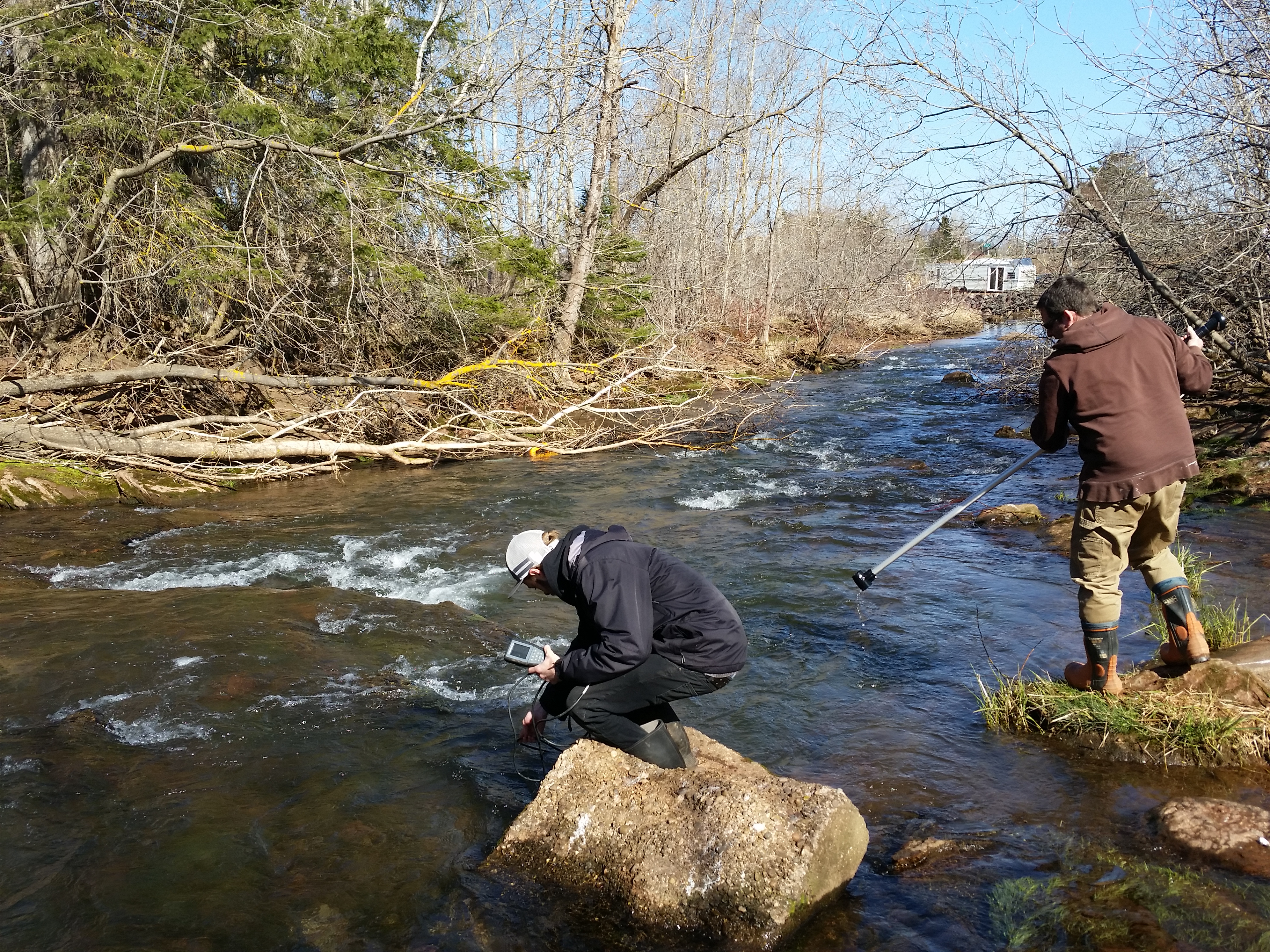Bedeque Bay Environmental Management Association
April 20, 2017The Bedeque Bay Environmental Management Association (BBEMA) worked extra hard last year to make sure Atlantic salmon in the area were as comfortable as they could be in their surroundings.
Thanks to $13,000 in grant money from the Atlantic Salmon Conservation Foundation, the group was able to fund their habitat conservation project in the Bedeque Bay watershed. The watershed is in central Prince Edward Island on the south shore adjacent to the Northumberland Strait.
BBEMA’s executive director, Tracy Brown, explains that despite having prime fish habitat conditions for fi sh production on PEI, the province continues to wrestle with ongoing land-use issues that compromise fish populations and angling opportunities.
sh production on PEI, the province continues to wrestle with ongoing land-use issues that compromise fish populations and angling opportunities.
“Challenges resulting from intensive agricultural production threaten many watersheds with excessive sedimentation, and chemical inputs like pesticides and fertilizers,” she said. “This is especially true in the Bedeque Bay watershed, the most agriculturally intensive watershed in the Maritime provinces. The agricultural challenges are well known, and they have received considerable attention by the over the last decade.”
“The most notable events were several devastating pesticide-related fish kills in both the Dunk and Wilmot Rivers in the early 2000’s that directly killed thousands of trout and salmon. A few years later, a major wash out occurred at Scales Pond dam that released large quantities of sediment downstream, smothering aquatic life for 7.5 kilometres downstream to estuarial waters.”
The goal of this project was to improve fish and fish habitat conditions in the Wilmot and the Dunk Rivers through a combination of fish habitat improvement and riparian zone restoration efforts. The BBEMA actively partnered with private landowners to improve riparian buffers and correct sediment sources entering watercourses/wetlands.
“Riparian zone restoration efforts saw approximately 4500 native trees and shrubs planted along with 2000 native swamp milkweed plants – many of these areas being previously used in agricultural production not long ago. The instream restoration efforts will improve fish habitat conditions on approximately 10 km of stream. This labour intensive work involved the selective removal of instream debris and placement of structures to consolidate instream sediment and help better define the natural stream meanders. Critical pool habitat areas for recreational fishing were restored or enhanced, including the Eel hole and Bell’s Hole.”
Brown said given the importance of unrestricted fish passage, an important additional component of work completed this past summer was the improvements to fish passage. Culverts that impede fish passage were identified as one of the most limiting factors to healthy stocks of migrating salmon parr and other fish species.
She notes the BBEMA partnered with an agricultural landowner to remove three undersized/crushed culverts that were blocking fish passage in a large tributary of the Wilmot River. The culverts – which had become crushed by the weight of the agricultural vehicles crossing the road – were replaced with a new appropriately sized bridge structure to ensure fish passage to the spawning habitat upstream. The installation of the bridge re-opened 6.7 km² of spawning habitat upstream.
“While this project focused on restorative measures to protect fish and fish habitat, there were some monitoring elements that will enable the BBEMA to increase our knowledge base and to help guide future watershed management efforts.”
Education and outreach with school groups was an important element to this project as well. Approximately 565 youth were engaged in fish habitat conservation activities through BBEMA Water Education and Outreach Programs: Adopt-A-River, Discover Your River, Fish Habitat Watch Out and River to the Sea.
In partnership with the Abegweit Biodiversity Enhancement Hatchery (through their Fish Friends Program) BBEMA partnered with Queen Elizabeth Elementary School and Summerside Intermediate School to release 157 Atlantic Salmon parr back into the Dunk River.
